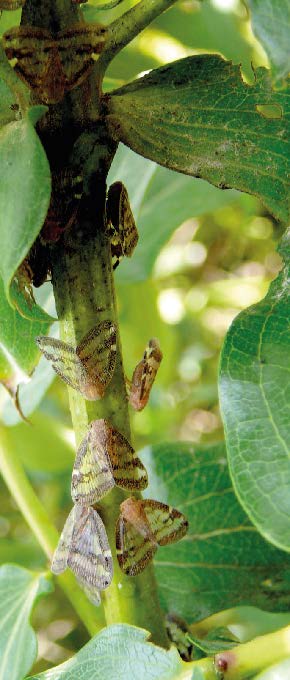Q. Is bee pollen at risk of tutin contamination, or does tutin only affect honey?
Dr Linda Newstrom-Lloyd is a Trees for Bees botanist.
A. The green parts and the sap of the tutu plant contain tutin, a neurotoxin, that is harmful to mammals, but bees are unaffected. The tutin toxin is not expressed in the pollen or nectar (American Chemical Society, 2022). Tutin is so toxic to animals that it killed an elephant in 1869 and another in 1956 (Stuff.co,nz). It has been responsible for stock losses when they browse on the leaves.
The only way bees contaminate honey with tutin is when they gather the honeydew left by the passion vine hopper, which was accidentally introduced from Australia shortly after honey bees. The passion vine hopper consumes the sap from the tutu plant, which is then excreted as a very sweet honeydew containing the toxin. This honeydew is collected by foraging bees and processed in the same way as nectar but making honeydew honey rather than floral honey.
The tutu flowers are produced earlier in the spring, outside the season for the passion vine hopper. Bees are highly attracted to tutu flowers. They collect both pollen and nectar from tutu flowers in spring, but there is no issue from tutu nectar or pollen contaminating honey because the passion vine hopper is not present until late summer to provide the honey dew.
REFERENCES
American Chemical Society.(2022). Tutin. Traveling to New Zealand? Beware of honey containing me. What molecule am I? Molecule of the Week Archive.
Beasley M., Hood, D., Anderson, P., Reeve, J., & Slaughter, R. J. (2018, April 13). Poisoning due to tutin in honey—a report of an outbreak in New Zealand. The New Zealand Medical Journal, 131(1473).
Connor, H.E, (1951). The Poisonous Plants in New Zealand. R. E. Owen, Government Printer.
Stuff.co,nz (January 31, 2009). Poison-honey culprit killed two elephants.

Passion vine hopper
